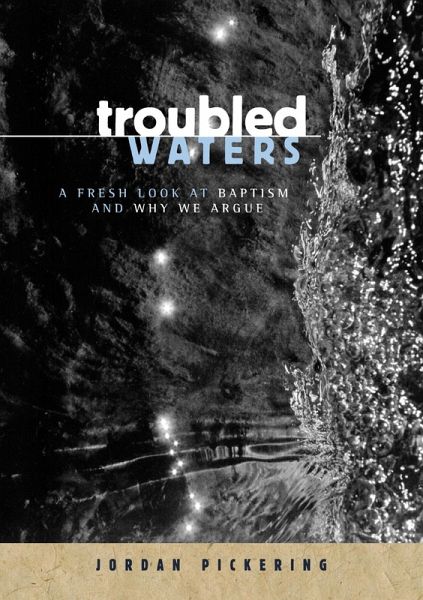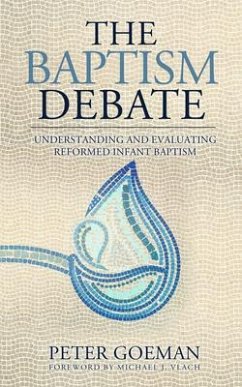
Troubled Waters: A Fresh Look At Baptism And Why We Argue (eBook, ePUB)

PAYBACK Punkte
0 °P sammeln!
Baptism is an issue that has long divided the Christian church, and in spite of 400 years of discussion, it is an argument that has not made much progress. Churches who baptise infants invoke the vague idea that the covenant is for us and our children, and churches who baptise believing adults only accuse paedobaptists of baptising unbelievers, and so denying the gospel of salvation through grace by faith. When arguing the details, each camp discusses the same biblical data, but without seemingly being able to hear each other. Even good scholars become oddly irrational when writing on this sub...
Baptism is an issue that has long divided the Christian church, and in spite of 400 years of discussion, it is an argument that has not made much progress. Churches who baptise infants invoke the vague idea that the covenant is for us and our children, and churches who baptise believing adults only accuse paedobaptists of baptising unbelievers, and so denying the gospel of salvation through grace by faith. When arguing the details, each camp discusses the same biblical data, but without seemingly being able to hear each other. Even good scholars become oddly irrational when writing on this subject, and in defending their 'camp', they fail to properly understand their opponents or the reasons why we have this division in the first place. This book is not devoted to a traditional defence of one of the baptism positions, and nor does it merely present both sides of the debate and ask the reader to decide. Almost uniquely in the literature on baptism, the approach of this book is to ask why we have these camps, and why it is that we are unable to understand one another. The main problem is that each camp has parted ways on theological issues much more fundamental than baptism. Our views on baptism are directly informed by our views on the covenants and on the nature of the church, and in both of these areas, paedobaptists and believers baptists are usually unwittingly in disagreement. Because the foundations are incompatible, each finds that the other's views on baptism make no sense. A secondary problem lies with the quality of our arguments. Many of the arguments that are typical of the debate are actually examples of logical fallacies, or at least ought to be regarded as presumptuous. This book aims at pointing out the errors that each camp has made in their arguments, and it attempts to understand baptism not merely as a tradition of the Early Church, but from its origins in the baptism of John. This book shows how correcting our foundations and challenging our assumptions can suggest a fresh solution to the problem of baptism.
Dieser Download kann aus rechtlichen Gründen nur mit Rechnungsadresse in A, B, CY, CZ, D, DK, EW, E, FIN, F, GR, H, IRL, I, LT, L, LR, M, NL, PL, P, R, S, SLO, SK ausgeliefert werden.













